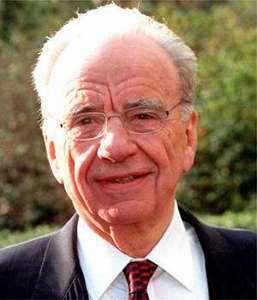Fox Group Inherits Strong Balance Sheet
The smarter way to stay on top of the multichannel video marketplace. Sign up below.
You are now subscribed
Your newsletter sign-up was successful

While most of the attention surrounding the spinoff of News Corp.’s publishing business was about the new unit’s nearly debt-free balance sheet (and $2.6 billion in cash), the split also provides nearly $7 billion in cash to the broadcasting and cable businesses that could be used for share repurchases and acquisitions.
News Corp. said last year that it would spin off its newspapers — The Wall Street Journal, Barrons and the New York Post in the U.S., The Times, Sunday Times and The Sun in the U.K. and The Australian, Herald Sun, The Daily Telegraph and The Courier Mail in Australia — as well as cable channel Fox Sports Australia into a separate entity to be called News Corp.
The U.S. cable channels FX, Fox News Channel, Fox Movie Channel, Fox Business Network and the National Geographic Channels; broadcast network Fox Broadcasting; 27 owned-and-operated television stations; and the 20th Century Fox film studio will belong to a new entity, to be called the Fox Group.
FORECAST: FAST GROWTH
The Rupert Murdoch-helmed media conglomerate elaborated on the spinoff plans a preliminary proxy statement.
Morgan Stanley media analyst Ben Swinburne said he expects Fox Group to be the fastest growing media company between 2013 and 2015.
“We believe management is focused on cleaning up its portfolio to unlock value, and that the appetite for leverage & capital returns at Fox Group will be higher than at current [News Corp.],” Swinburne said in a research note.
The smarter way to stay on top of the multichannel video marketplace. Sign up below.
Sanford Bernstein media analyst Todd Juenger estimated Fox Group could be worth $24-$30 per share once the spinoff is complete, and that the pure-play entertainment company could have an implied market value of $55 billion to $65 billion.
The proxy said News Corp. will not be responsible for parent company debt after the spin, and will have about $2.6 billion of cash.
And $7 billion in cash will sit on Fox Group’s balance sheet, along with $4 billion to $5 billion the new unit is expected to generate annually in free cash flow.
News Corp. has been an aggressive buyer of assets in the past, but most analysts believe the company will take a more conservative approach and earmark the cash for a combination of share buybacks — it already has a $5 billion share-repurchase plan in place — and smaller acquisitions.
News Corp.’s returns to shareholders have been “phenomenal” over the past few years, RBC Capital Markets analyst David Bank said, although it has held back a bit during the separation process. Bank expects those returns to come back even stronger once the split is completed later this year.
He said separating from the publishing business, which has the most sensitivity to macroeconomic issues, should give Fox Group more visibility into longer term earnings and make them more comfortable laying out a longer-term capital allocation strategy.
“I would expect to see their priority be capital returns,” Bank said.
Added Wunderlich Securities media analyst Matt Harrigan: “I would like to think that this resolves some of the uncertainty in terms of capital commitment and they become more active on the repurchase side.”
Harrigan pointed out News Corp. has already made some aggressive acquisitions this year: the reported $1.5 billion purchase of a 49% interest in the Yankee Entertainment and Sports Network, the estimated $235 million purchase of Sports Time Ohio, home of the Cleveland Indians and the consolidation of ESPN Star Sports. Earlier this month it announced plans for an August launch of a national sports network, Fox Sports 1.
RIGHTS LOCKED UP
Harrigan saw little need to hoard cash for future sports right acquisitions for the new sports channel. “They’ve got a nice set of sports rights already,” he said. “The way the contracts work, you’re not making large up-front payments; there’s no reason to have high single-digit billions or mid-single digit billions just in anticipation of getting more sports rights.”
Bank said most major sports rights are already locked up in long-term deals — National Basketball Association games come up in 2016 — and Fox Group always has the option of using the cash for other purposes as opportunities arise.
“I don’t think liquidity in any case is a constraint for them. It’s more, what is the optimal allocation of capital? Is it to buy back your own stock? Or is it to buy other things or is it to keep your powder dry,” Bank said. “Generally, keeping your powder dry is not a choice that people are going to be happy with, because that just makes them wonder what you’re keeping it dry for.”
TAKEAWAY
The spinoff of News Corp.’s newspaper assets has left Fox Group — the new name for the TV/fi lm business — with a hefty war chest.
